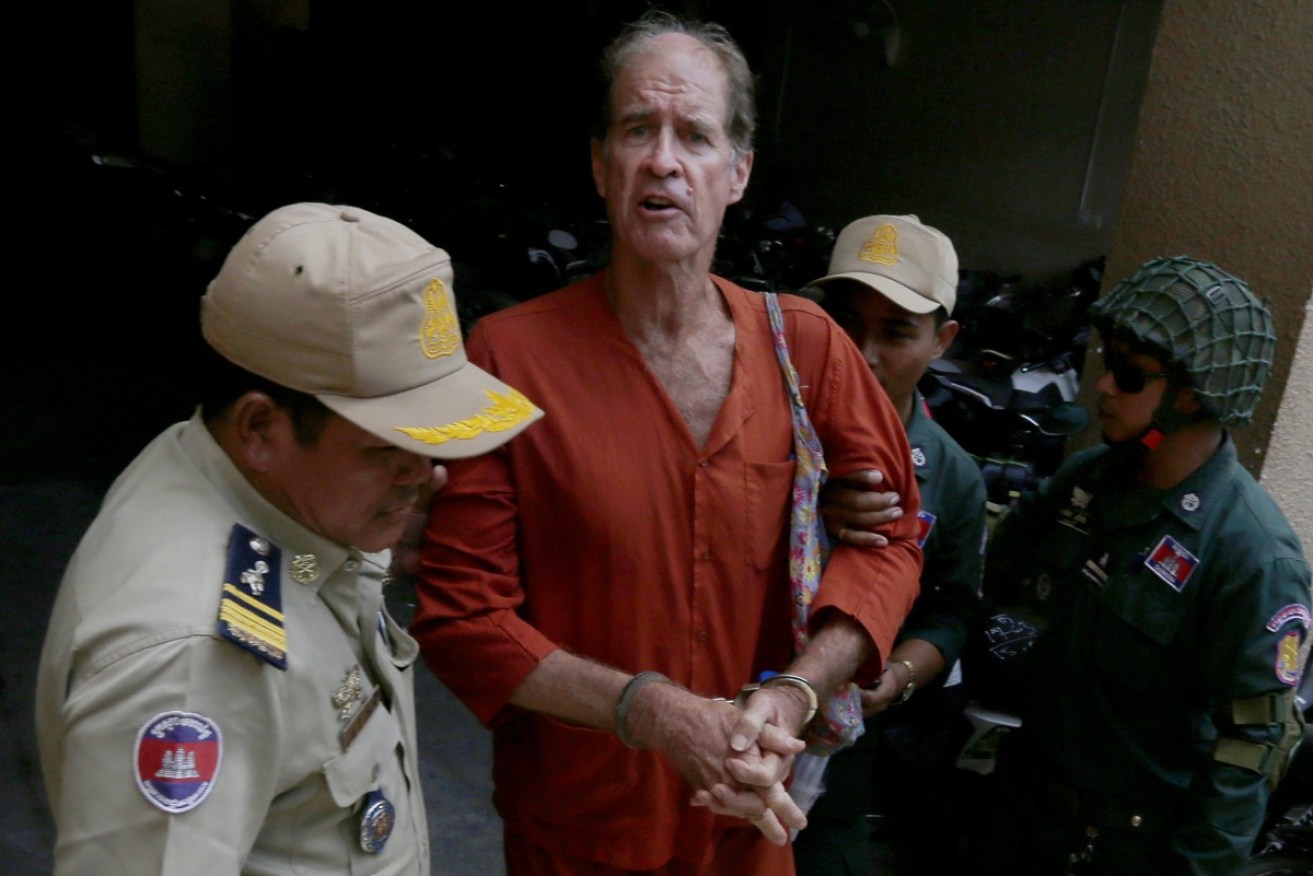‘He gave us money to buy food’: Cambodian goddaughter defends James Ricketson

James Ricketson has been in a Cambodian prison since June last year. Photo: AAP
A former street beggar testified in the case of jailed Australian filmmaker James Ricketson on Monday, telling a Cambodian court how the accused spy had lifted her and her family out of abject poverty.
Chap Thy, 32, is the subject of an ongoing documentary being made by Mr Ricketson, who is facing up to 10 years in prison after being arrested flying a photographic drone over a political rally in Phnom Penh in June last year.
The prosecution argues that, since 1995, Mr Ricketson has been collecting information that would compromise Cambodia’s national security, but is yet to say which country he is spying for or provide any evidence to support the charge.
Mr Ricketson is well-known for his attacks on the long-ruling Cambodian government and unscrupulous child protection agencies. But his softer side was put before the court on Monday, with Ms Thy breaking down as she described her 22-year relationship with the man she calls her godfather.
“I was homeless, a beggar, sleeping on the streets with my mother,” Ms Thy said of her first meeting with Mr Ricketson, when she was 10.
“First, he gave us money to buy food and medicine. After, he donated money for me to go to school and he has been supporting my family ever since.”
Heavily pregnant with her ninth child, Ms Thy is just one of many recipients of Mr Ricketson’s philanthropy.
For more than 20 years, the filmmaker has been visited the impoverished South-East Asian nation, supporting and documenting the plight of some of its most desperate people, including families living off rubbish dumps.

James Ricketson has been involved in charity work in Cambodia. Photo: Facebook
After establishing Ms Thy’s relationship with the accused, the prosecution began digging into her knowledge of his work as a filmmaker, angling for information that might inculpate him in a plot to undermine Cambodia’s national security.
Unable to extract any information regarding Mr Ricketson’s knowledge of Cambodian “military strategy or political manoeuvrings”, the prosecution zeroed in on the potential legal ramifications of filming and financially supporting a child beggar living on the streets.
Ms Thy told the court that she was at first unaware that she was “the main actress” in Mr Ricketson’s unfinished documentary about Cambodia’s homeless, in a line of questioning that raised the possibility of child exploitation charges being added to Mr Ricketson’s case file.
“I donate money to send children to school because I believe that education is the only way to break the cycle of poverty that so many people here are born into,” Mr Ricketson told the court.
Day two of the trial then descended into confusion, as the judges and prosecutors spent almost half an hour trying to translate and understand the titles of Mr Ricketson’s three feature films – Blackfellas, Third Person Plural, and Candy Regentag – and the name of his former production company, Abraxas Films.
Mr Ricketson was next to be left stumped as the prosecution began questioning him about his “four adopted children” – a topic that had been drawn from thin air, or, more precisely, shoddy work from the defendant’s translator.
“We cannot continue like this,” the judge said, chastising the translator, as proceedings turned farcical.
“The translator needs to relax. If you don’t understand something, slow down and ask again. Don’t just continue incorrectly.”
The panel of three judges adjourned the hearing early, rescheduled for Thursday, and asked that the defence find a new translator.
In a positive sign for Mr Ricketson, who has been held in a notoriously overcrowded and under-resourced prison for more than 14 months, the judge indicated that he wanted the trial to be completed on Friday.
“Like at the last hearing, we have seen no evidence that James is a spy,” the accused’s son, Jesse, said outside the court.
“It is a good sign that the judges seem to want to get this trial wrapped up quickly and justice can be done according to court procedure.”








